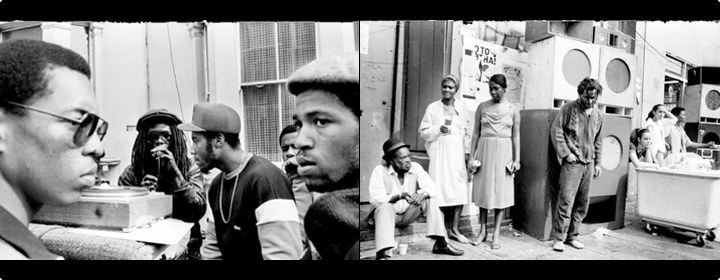| |
 |
| |
PM:
|
本の最後に、君の両親が君にギターではなく、カメラを買ってくれたことに対する感謝の言葉があるわけだけれど、本当は両方とも欲しかったの? |
|
In the end of the book you thank your parents for buying you a camera ?and not a guitar? Did you want both? |
|
| |
JC:
|
一時、欲しかったかもしれないけれど、本気ではなかったね。あれは冗談。「ギターを買ってあげていれば、今頃大金持ちになっていたのに」と最近、母親に言われて。彼女も冗談で言ったんだと思うよ。 自分としては、今のこの結果に満足している。カメラを手にして、写真を撮り、エキスペリメントするようにとプッシュしてくれた僕のおじさんたちもクレディットしないとね。 |
|
Maybe for a minute, not really. That was more of a joke, in that my mother recently said,” I should’ve bought you a gtr years ago and you would’ve been rich by now” I think she was kidding. I’m happy the way it turned out.
I should credit my uncles who had cameras and encouraged me to take pictures and experiment. |
|
| |
| PM: |
あなたの写真の多くが、バンドやミュージシャンあるいは、音楽シーンや音楽に関するシチュエーションだったりする。あなたは自分のキャリアが、このように音楽に関わるようになると思っていましたか? |
|
It is interesting because a great deal of your photographic subject matter is of bands, musicians and the scenes and situations ?surrounding them. Did you think that music would frame so much of your career??? |
|
| |
| JC: |
意識したわけではないんだ。音楽は、親のレコードを通じて知ったんだよ。家族でメキシコに住んでいて、帰ったらお母さんがミスったものを追いかけるように『Abbey Road』とか『Get your Ya Ya’s Out』とかを買ってたね。ボヘミアンな親に育てられたから、子供の頃から公民権運動のことは常に耳に入ってたし、スペシャルズとかクラッシュのようなグループのコンシャスアスペクト(社会問題意識している態度)は気に入ってた。彼らは語るべき、重要なことを語っていた。僕らは同じだった。僕は自然に音楽へ流れた。それは、70、80年代のニューヨークにあった「何か」がそうさせたのかもしれない。その頃は、いたるところに音楽があったんだよ。73ストリートのSIRE RECORDSの外のゴミ箱の中にラモーンズのテストプレッシングを見つけたりね。当時はミュージシャンとファンが今より、もっと近かったんだ。サウンドチェックを見に行ったら、黙ってショーに入れてもらえたし、ハンギンアウトさせてもらえたよ。あの頃はラミネート(パス)なんかなかったね。 |
|
It wasn’t conscious. I was introduced to music through my parents records.
We were in Mexico and when we got back my Mom bought Abbey Road, and Get your Ya Ya’s Out… catching up on what she’d missed. Growing up with Bohemian parents hearing about the civil rights movement, the conscious aspect of groups like the Specials and The Clash was appealing to me. They were saying something important, that needed to be said. We were all the same. I just gravitated towards music. Maybe it was something about New York In the seventies and early eighties. There was music everywhere. We found Ramones test pressings in the garbage On 73rd St outside Sire records. The musicians were closer to the fans then. You could go to a sound check and they’d sneak you in and let you hang around. There were no laminates back then. |
|
| |
| PM: |
あなたの写真の多くは、被写体との間に、距離を感じさせる。そして、撮影はとてもリラックスして、写真も落ち着いた感じ。撮影に対するコツのようなものがあるのですか? |
|
Your pictures are often detached and have a space between up and the subject. You shoot in a very relaxed manner, your pictures seem at ease. How do you achieve that so often?? |
|
| |
| JC: |
まず、自分はそれなりに落ち着いた人間だと思う。クリエイトしているアーティストの近くにいる時は彼の風景の一部になりきる必要があるんだ。チル、だね。僕はそれが得意なのさ。あとは僕はファニーだから人を笑わせ、落ち着かせることができる。最初のアイスを溶かしたら入り込める。シーンの一部になれる。それに、レコーディングスタジオはとてもリラックスできる場所だよ。大音量で曲を再生している時でさえ、スタジオが子宮のような気がして、簡単に眠れてしまう。 |
|
I think I’m a pretty calm person. When one is around artists creating one has to become part of the scenery, be chill. I’m good at that. But also I’m funny and I can make people laugh and feel at ease. Once you break the ice you can blend in
Be apart of it. I always found recording studios very relaxing. Even when the music was really loud during playback it was very womblike one could easily doze off. |
|
| |
